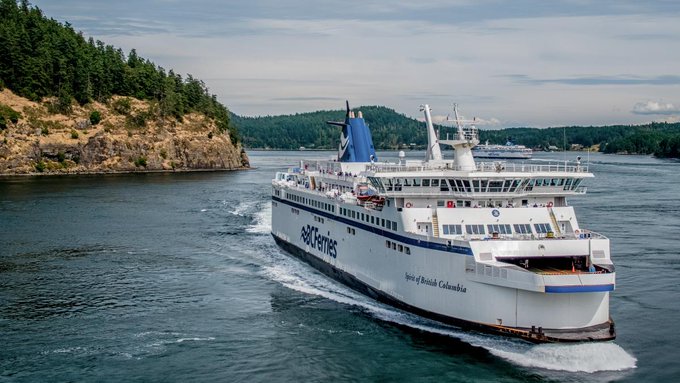More than 10,000 customers participate, further engagement planned for later this year
BC Ferries updated communities today on the feedback it received during the popular new major vessel engagement the company ran earlier this year for the next generation of ferries. More than 9,600 people responded through the online engagement, in addition to more than 1,700 customers taking part in sessions on board the ships and in community workshops.

The first phase of engagement focused on nine topic areas, including: accessibility, pedestrians and cyclists, pet spaces, outdoor spaces, food and beverage, family spaces, new amenities, technology, and additional thoughts and key considerations like sustainability and future flexibility to meet changing needs. Feedback included, for example, requests for more space and amenities for pet owners, more diversity in fresh food choices, improved areas for bicycle storage and quiet areas away from technology and noise, among other topics.
Other considerations included flexibility to meet changing travel demands and reducing the company’s environmental impact. In particular, thoughts about reducing waste, reducing reliance on fossil fuels, and minimizing air and noise emissions topped the list of considerations. BC Ferries is committed to engaging those who are impacted by the company’s decisions and incorporating the feedback into the decision-making process wherever possible.
“We’re excited about how many customers participated in these conversations and the ideas we heard on how we can improve their experience while travelling with us,” said Mark Collins, BC Ferries’ President & CEO. “We look forward to taking the feedback we heard, along with the results from our technical studies, to inform the design requirements for these new ferries.”
When it comes to designing the ships, BC Ferries’ key priorities are safety, environmental sustainability, underwater radiated noise (URN) and capacity. The company has been an early and active participant in efforts to reduce GHGs and URN. Each new class of ships BC Ferries builds is cleaner and quieter than the ships they replace. For more information on BC Ferries’ long-term plans, see its Underwater Radiated Noise Mitigation Plan and Clean Technology Adoption Plan.
BC Ferries will be building at least four new ferries to replace four existing vessels. The new ferries will potentially add capacity to the Metro Vancouver – Vancouver Island routes and replace the Queen of New Westminster, Queen of Alberni, Queen of Coquitlam and Queen of Cowichan that currently serve those routes. The new ships are being specified to deliver enhanced environmental sustainability and offer flexibility to meet changing travel demands into the future. BC Ferries expects the new ferries to enter service in the mid-2020s.
Later this year, a second round of engagement is planned to build on what the company heard through this initial phase of engagement. This engagement will explore sustainability and future flexibility in more detail as BC Ferries seeks to better understand how to build ferries that will serve future generations of travellers while prioritizing the protection of the natural environment. To view the full Phase 1 engagement report, and for more information about the project, visit bcferries.com/about/nextgen.
The acquisition of the ships is a major capital expenditure that requires the approval of the BC Ferries Commissioner under Section 55 of the Coastal Ferry Act. Subject to a favourable decision, BC Ferries expects to award a contract to build these vessels next year.
For the list of world's largest cruiseferries by shipping line/company see at CruiseMapper
Source: BC Ferries